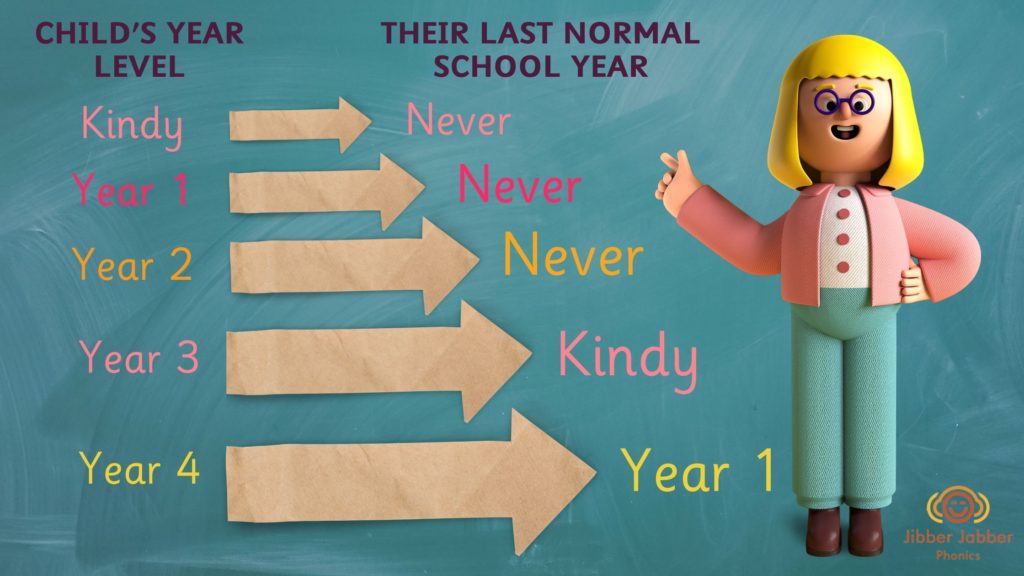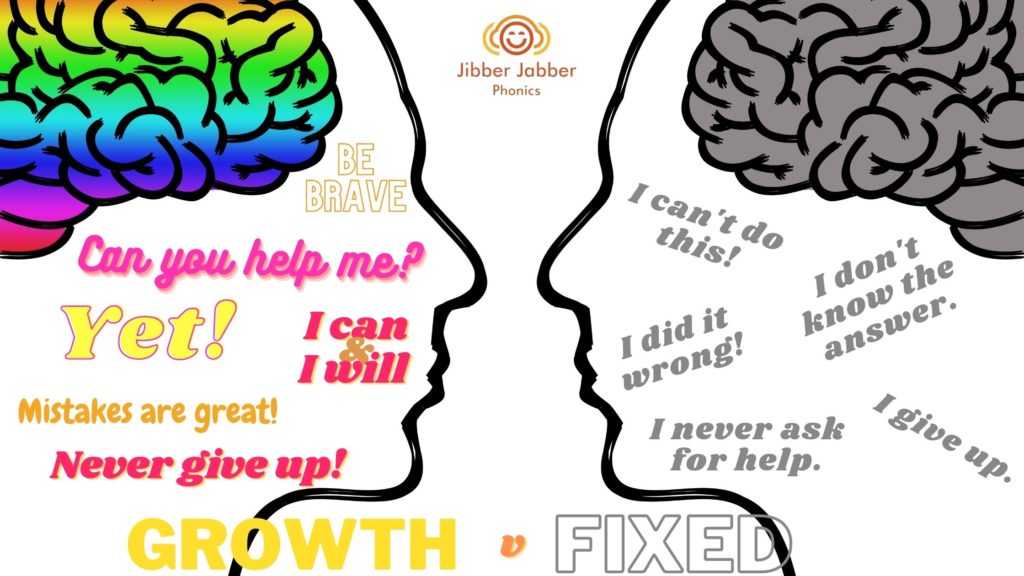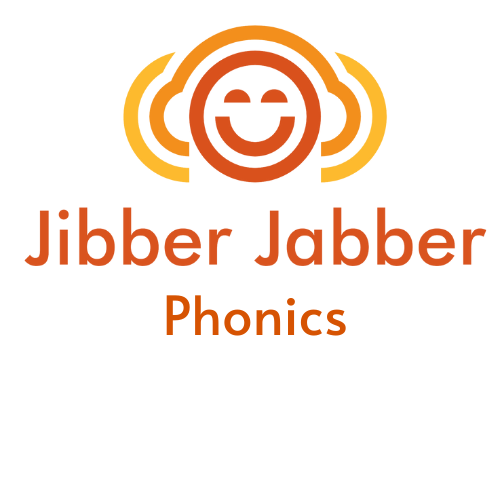Nurturing the right kind of mindset in our young learners is important for their motivation. Keeping them going when we are all getting back to a ‘normal’ school day might not sound that easy. Their mindset is how learners approach a difficult or challenging task to get it done.
Coming out the other side of a pandemic is challenging enough for us as teachers. Let’s think about the struggles learners are having too. After two years of disrupted schooling think on this – if your learners are in Year 2, they have NEVER had a normal school year. That’s a tough place for them to be. They are going to feel very challenged and there are many things they have never experienced in a classroom. This includes
- socialising,
- meeting a teacher,
- helping others,
- sitting at a desk and
- spending all day with people they have not learnt to trust.

It’s no wonder that 7-year-olds might find school a huge challenge.
To help them succeed it is important to take some time and encourage learners to adopt a growth mindset. Where to start with that!!
What is a Growth Mindset?
Your mindset is how you think and feel about something. It is not what you can or cannot do. In the past, studies said that we only had the intelligence we were born with. No matter how much you worked at something, your ability would remain the same. Carol Dweck – psychologist and researcher, has proven this to be nonsense. She has shown that everyone can move from a fixed mindset to a growth mindset.
Fixed mindset verses growth mindset.
Students with a fixed mindset have the belief that they are good at something or not. They give up on things that they consider to be beyond them and instead they’ll focus on stuff they know they’re good at.
A growth mindset is where challenges are seen as an opportunity for personal growth and with dedication and hard work, they will succeed.
I often explain this to children by asking them to think about learning to walk. Did they give up!! No, they didn’t because if they had, someone would be carrying them everywhere!
As we get older, our mindset can change. When we are young, we don’t have the ability to fail at learning to walk or speak or ride a bike. Our option to fail at these tasks are not options!

Neuroplasticity
Our brains are designed to be constantly re-wired. Our brains have the capacity to change their connections and behaviour in response to new information. They can form new neural connections throughout life. This is neuroplasticity. When we learn new things, the nerve cells in the brain multiply and become stronger. Then the things that we once found impossible become easier. This is learning!!
5 activities for growth mindset
There are many activities that can be adopted to create a growth mindset. Here are my top 5 strategies you can use to develop a growth mindset.
- Perseverance. Praising students for their effort will motivate them. Encouraging them to ask for help will support them. Showing them how to be proud of their work is a great motivator.
Say things like;
“I’m impressed that you didn’t give up.”
“I can see how much you have practiced.”
- The Power of Yet. When students are tempted to say “I can’t” encourage them to add YET to the end of their sentence. Explain that some things take a little time and it will happen
I can’t do this…..YET.
I can’t make this work…..YET
- Mistakes are encouraged. A child’s fear of failure stems from a fixed mindset. Let them know that we can learn as much from mistakes as we can from getting it right. I often talk about my own mistakes to them. This will let them see that mistakes are acceptable.
- Resilience. This is the skill of bouncing back when something is tricky. When children are resilient, they perform better both academically and socially. Teach them to never give up!
- Try New Things. Fear is typical when something new challenges students. This can make them feel uncertain, anxious, and vulnerable. NOT attempting something new can lead to missed opportunities. Point out that just the process of trying new things is positive and they will see improvement when they have a growth mindset.
Click here to download a free Mindset Workbook to use in your classes.
How are you going to encourage your learners to have a growth mindset? If they haven’t got one YET, they will with some perseverance, resilience and trying new things. Keeping a journal of progress will help them look back and see how far they have come.
Let me know in the comments below if you have found this useful.
My name is Vicky and I started teaching in 2012. I started at an international school in the Maldives and have also taught in Spain and the UK. In July 2021 I was approach by Jolly Learning UK and became an accredited Jolly Phonics trainer. I love the power of the Jolly Phonics programme to teach learners to read and write, independently from an early age.


0 Comments